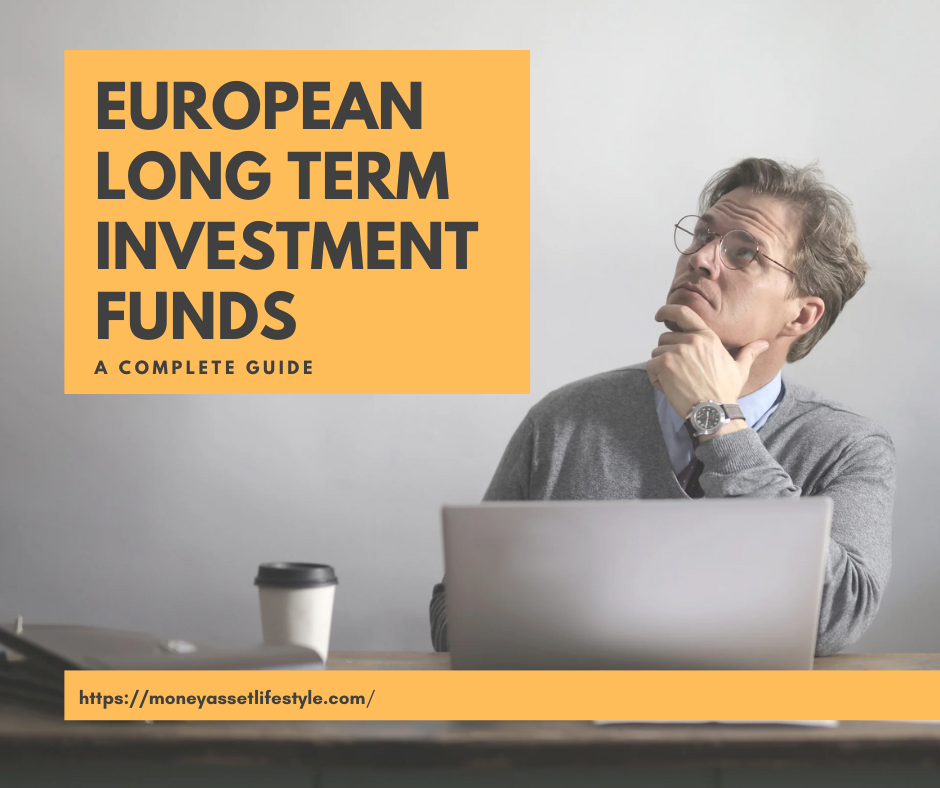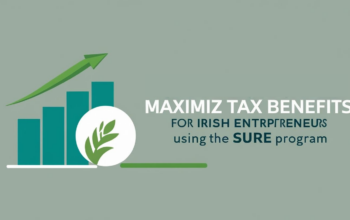
ELTIFs (European Long-Term Investment Funds) are cool, and reliable rather than traditional investment funds. How? Well,
They’re designed to help investors park their money in long-term assets like infrastructure, real estate, and private equity while still offering attractive returns. Think of them as the steady, long-term game player in a world of fast-paced, short-term investing.
And Ireland is even making its way to ELTIF 2.0. The country isn’t just keeping up. It’s aiming to lead the pack. What’s the benefit of this things? Let me explain.
What is the European Long-Term Investment Fund ELTIF?
ELTIFs is basically, they’re a way to invest in big, long-term projects across Europe. We’re talking about stuff like infrastructure (roads, bridges, renewable energy), real estate, and even small-to-medium businesses that need funding to grow.
Well, ELTIFs let everyday investors (not just the big guys) put money into projects that normally wouldn’t be easy to access like private equity or big development projects.
The catch?
These funds are built for the long haul, meaning you can’t just cash out whenever you want.
What’s Changing In ELTIFS 2.0?

ELTIF 2.0 makes it easier for retail investors to get into private markets, but there are strict rules on how these funds are marketed. AIFMs (fund managers) must separate funds for professionals and retail investors:
- Fewer restrictions on portfolio composition and diversification.
- Expand options like master-feeder funds and fund-of-funds.
Tweaks to redemption rules mean some ELTIFs can now be open-ended.
- Higher borrowing limits (up to 100% of fund capital) and fewer investment restrictions.
- Lower borrowing cap (50%) and more protections.
Is Eltif Promise Zero Corporation Tax In Ireland?
ELTIFs don’t automatically promise zero corporation tax in Ireland. But depending on how they’re structured, they can have tax advantages.
Here’s the deal:
- ELTIFs themselves aren’t taxed at the fund level in many cases, but this depends on how they’re set up and where they’re domiciled.
- In Ireland, investment funds (including ELTIFs) typically fall under a tax-neutral regime, meaning the fund doesn’t pay corporation tax. However, investors are taxed on their returns when they cash out.
- If the ELTIF is structured as an Irish-domiciled investment fund (like an ICAV – Irish Collective Asset-management Vehicle), it benefits from Ireland’s tax-efficient framework.
For small businesses specifically, Ireland offers Section 486C tax relief, which is different from ELTIF regulations.
Section 486C is a tax relief rule in Ireland that helps small businesses by exempting them from corporation tax if their annual profits are €40,000 or less.
For example,
- Full Tax Exemption – If a company’s profits are €40,000 or lower, it does not have to pay corporation tax.
- Partial Relief – If profits are between €40,000 and €60,000, the company gets some tax relief (gradually reduced).
- No Relief – If profits exceed €60,000, the company pays the normal corporation tax rate.
However, this benefit is available only for the first 5 years.
How Do Eltifs Work In Ireland?
ELTIFs in Ireland work like a bridge between long-term investments and investors looking for stable returns. These funds pool money from both retail and professional investors to invest in real assets like infrastructure, real estate, private equity, and SMEs.
Under the ELTIF 2.0 framework,
Ireland has made it easier for professional investors ELTIFs (P-ELTIFs) by reducing investment restrictions. Only 55% of assets need to be in eligible investments, and borrowing can go up to 100% of net asset value. Plus, unlike other Irish funds, ELTIFs can originate loans without extra local restrictions, which is a game-changer for the private credit market.
So, in short, ELTIFs in Ireland offer a regulated yet flexible investment structure, making them a strong choice for those looking at long-term, high-value opportunities.
How Do Eltif Returns Compare To Other Funds In Ireland?
ELTIFs are like planting an apple tree and you won’t get fruit overnight. Therefore when you are done with it, it is worth the wait. Unlike traditional Irish funds like UCITS, which offer easy access to your money but often lower long-term returns. ELTIFs focus on big-picture investments think real estate, infrastructure, and private equity.
Since they invest in illiquid assets,
ELTIFs take time to grow, but the potential rewards can be solid. Meanwhile, other funds might give you quicker returns. But they don’t always pack the same punch over the long run.
So, if you’re cool with a slow-and-steady approach (and not checking your portfolio every five minutes), ELTIFs could be the way to go.
How Are Taxes Handled For Eltifs In Ireland?
Taxes and investments—two things that can make your head spin! But don’t worry, ELTIFs in Ireland keep things relatively straightforward.
If the ELTIF is structured as an Irish Qualifying Investor Alternative Investment Fund (QIAIF), it benefits from Ireland’s tax-efficient regime—meaning no Irish tax at the fund level on income or gains. Instead, the tax burden falls on investors based on their own tax situation.
For Irish investors, any profits are usually subject to capital gains tax or income tax, depending on how the money is made. For international investors, Ireland’s double tax treaties help minimize unnecessary tax headaches.
So, while ELTIFs can be a long-term commitment, at least they won’t surprise you with sneaky tax bills along the way.
How Are Taxes Handled For Eltifs In Ireland?

Taxes and investments 2 things that can make your head spin. But don’t worry, ELTIFs in Ireland keep things relatively straightforward.
If the ELTIF is structured as an Irish Qualifying Investor Alternative Investment Fund (QIAIF). It benefits from Ireland’s tax-efficient regime meaning no Irish tax at the fund level on income or gains. Instead, the tax burden falls on investors based on their tax situation.
For Irish investors,
Any profits are usually subject to capital gains tax or income tax, depending on how the money is made. For international investors, Ireland’s double tax treaties help minimize unnecessary tax headaches.
So, while ELTIFs can be a long-term commitment, at least they won’t surprise you with sneaky tax bills along the way.
Outro
ELTIFs in Ireland are something to keep an eye on. With fewer restrictions and a focus on steady growth. They offer a unique opportunity to invest in the future while enjoying the perks today. Ireland is making it easier than ever to get involved, so why not take advantage of it? Who knows, your future self might just thank you.


